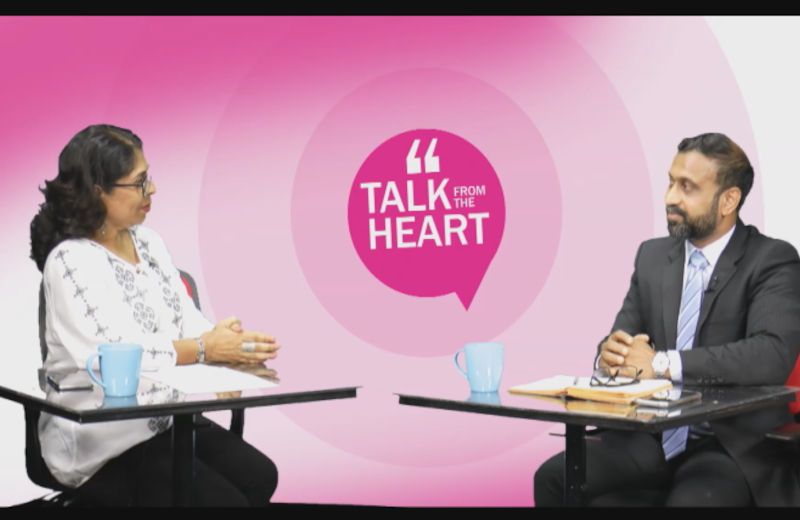
Investing is important, if not critical, to make your money work for you. You work hard for your money and your money should work hard for you. Legendary investor Warren Buffett defines investing, as the process of laying out money now to receive more money in the future. However how to lay out that money, what are the risks involved, what are the investment options available, are some questions we all have. To understand the basics of money management, certified financial advisor with two decades of experience across many blue chip organizations, Nelson D’Souza was invited on the Navhind Times, Talk from the heart show that aired on the Goa 365 channel on Sunday, November 28.
Explaining the role of a financial advisor, D’Souza who has given expert advice on various national business channels such as CNBC, Bloomberg, Zee Business and NDTV in the past, said, “SEBI has now given the label of scientific advice to investment advisory and a financial advisor advices the client after studying the client first before making any advice“
The first step when one wants to start their investment journey is to get a financial advisor, recommended D’souza and added, “This might not be easy given the dearth of certified advisors. Instead as a first step one should compute his or her income and expenses by using basic computing tools such as Windows Excel.” He then emphasied the need to quantify financial goals such as higher educational expenses, marriage etc. He also encouraged viewers to study the concept of Inflation and how it can make goals expensive through the passage of time. He said it is easy to find the future value of a financial goal by using Google to compute and provide for the future cost of these goals.
He suggested that 30% to 40% of monthly salary or income should be put aside to build an investment portfolio, which could include the provident fund. “Investing early and taking some amount of risk,” he said, “go hand in hand.” He highlighted the need to identify ones risk appetite for risk based investments and discouraged those who have low risk appetite and those who are in the senior citizen bracket from taking excessive risks in the market. “This is due to time in markets as a factor, which is easily available for younger people against the older lot,” he explained.
He advised younger people who were starting out with jobs to start investing in Mutual Funds and ULIPs. “I would suggest you also buy Insurance through ULIPs or Term Plans while younger since this keeps the cost of covering a person lower. In fact buying insurance should be the very first thing a person starting out should do before even investing.” Investing early, according to D’Souza, can improve the chances of seeing success in risk-based investments whilst also reducing the chances of losses. “Youngsters today are far more active in investing compared to my own generation,” he added and credited social media and the internet for this rise in awareness in youngsters today.
On the subject of Equity Stocks, he opined that only the experienced and knowledgeable should venture directly owing to the complexity of the subject. He instead encouraged investing in Equity Mutual Funds as an alternative to those who want to invest in Capital Markets. He cited the Economics of Scale and the availability of a Fund Management team that make a Mutual Fund more attractive for common investors. Explaining Mutual Fund, he said, “It is a pooled vehicle wherein investors put their money together and give it to the Fund Manager to decide and manage their funds into a stated objective predefined by the fund.” He divided Mutual Funds broadly as Equity, Debt and Hybrid Funds.
He warned investors not to invest based on past performance whilst highlighting the vast benefits of debt funds for conservative and income seeking investors alongside the tax advantages. At this juncture he stated the need to create an allocation based portfolio by splitting between Debt and Equity investments. He pointed out how investors would be required to reduce the Equity allocation as they turn older so as to reduce risk. He recommended ULIPs for those who prefer combining investments and insurance while keeping an eye on the cost of Insurance.
He also spoke at length about paper gold and investment in foreign countries.
D’Souza shared many tips with viewers on safety, diversity and vehicles of investment. It was an extremely informative talk that made money management easier to understand and follow.



